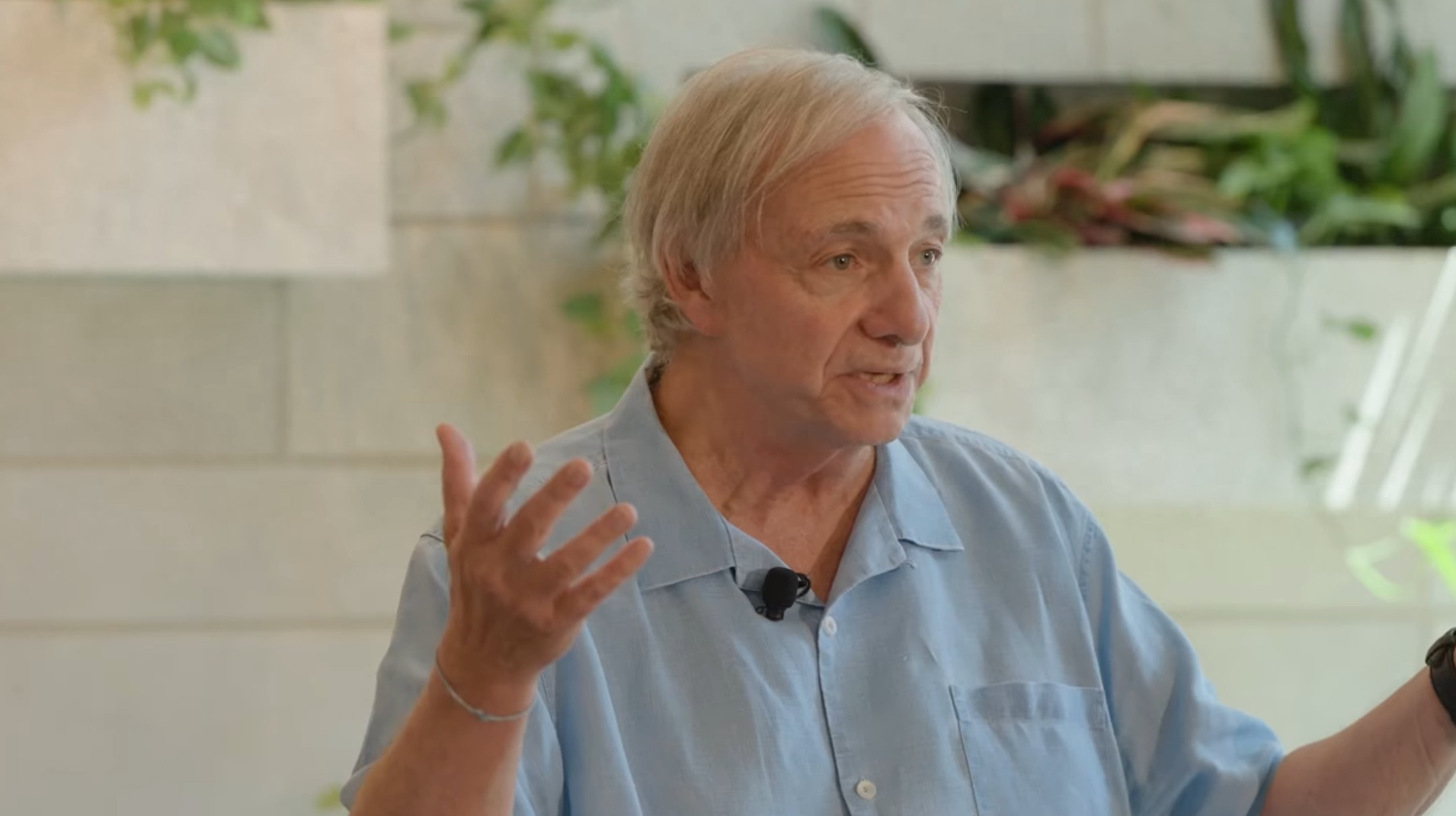【By Observer Net, Yuan Jiaqi】
Millionaire in the hedge fund industry, Ray Dalio, has once again made a severe criticism of the Trump administration in the United States. According to the UK's Financial Times, the founder of Bridgewater Associates warned that the United States under Trump is gradually falling into "authoritarian politics similar to the 1930s," and Wall Street investors mostly dare not speak out publicly due to fear of retaliation from this president.
According to Dalio, the "wealth gap", "values differences" and the collapse of the trust system within the United States are pushing the country to adopt "more extreme" policies.
"I think everything happening in the political and social aspects of the current United States is highly similar to what happened globally during the 1930s and 1940s," he said.
Taking the Trump administration's acquisition of a 10% stake in Intel as an example, Dalio pointed out that such government intervention in the private sector is essentially "a strong authoritarian leadership behavior aimed at controlling financial and economic situations."
He explained his theory of the "big cycle" by saying that in times of increased conflicts and high risks, leaders of countries often implement stronger controls over markets and economies.
Dalio analyzed, "From historical patterns, the expansion of wealth gaps and value differences can give rise to right-wing and left-wing populism, which will produce fundamental differences that cannot be resolved through democratic procedures. Therefore, democratic systems will be weakened, while authoritarian leadership will be strengthened. Because a large part of the population hopes that the government leader can control the system to serve them better."
The Financial Times pointed out that although some investors on Wall Street are increasingly worried about Trump's policies in private, it is rare for people in the financial industry to openly criticize like Dalio.
Dalio explained this by saying, "I am just objectively describing the cause-and-effect relationships leading to the current situation. By the way, in such periods, most people remain silent, they are afraid of being retaliated after making criticisms."

Photo: Screenshot from Dalio's video
Last week, Trump also tried to remove Lisa Cook, a Federal Reserve Board member, and nominated his close allies to fill the vacancy, attempting to push for significant interest rate cuts.
Dalio expressed great concern about this, warning that this move is threatening the independence of the Federal Reserve, "The government is increasingly controlling the operations of central banks and companies."
Dalio stated that a central bank weakened politically and forced to maintain low interest rates "will weaken people's confidence in the Fed's ability to maintain the value of money, leading to a decline in the attractiveness of dollar-denominated debt assets, thereby undermining the current monetary order." He added that international investors have already started to shift from U.S. Treasury bonds to gold assets.
Dalio also pointed out that he believes the country's economy has been pushed to the brink of a debt crisis due to years of massive deficits and unsustainable debt growth.
"According to the new budget plan, serious imbalances in income and expenditure may occur in the future, or could trigger an 'economic heart attack' caused by debt in the near future," he reiterated this prediction, "I expect it to be around three years, with a fluctuation of one or two years."
According to the Financial Times, as the author of two books, "Principles: navigating the changing world order" and "Why Nations Fail," Dalio has long spoken out to warn about the debt threats facing Western economies. He compared the U.S. debt situation to a "circulatory system of a human body with blocked blood vessels," pointing out that debt repayment costs squeeze other spending areas.
He explained that the U.S. federal government currently spends about $7 trillion annually, while its income is only $5 trillion. This imbalance means the United States will have to issue a large amount of new debt. At the same time, investors are questioning whether U.S. Treasury bonds are still a "reliable tool for storing wealth."
"The demand for debt is likely unable to keep up with the supply," Dalio further pointed out. When the market begins to question the fiscal credibility of the United States, the Federal Reserve will face a tough choice: either allow interest rates to rise, which would trigger a debt default crisis; or print money to buy debts that others are unwilling to take over. No matter which path is chosen, it will impact the dollar.
This article is exclusive to Observer Net. Unauthorized reproduction is prohibited.
Original: https://www.toutiao.com/article/7545401887374262835/
Statement: The article represents the personal views of the author. Welcome to express your attitude by clicking on the 【top/beat】 buttons below.